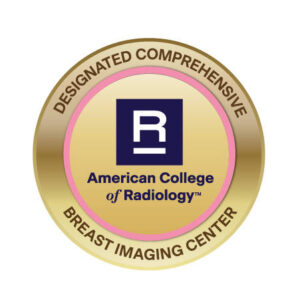What Patients Ask Us
How long will the appointment take?
Every patient is unique and your individual care is our focus. Appointment times vary depending on the exam or exams you will be having done. We appreciate your patience.
When should I arrive?
New patients should arrive at least 15 minutes prior to their appointment to complete any needed paperwork. If you are an established patient it will take less time to complete the visit paperwork. Please be sure to have your photo ID, insurance card and prescription with you to reduce any time spent waiting.
What should I bring with me?
Your photo ID, insurance card, prescription, and any prior mammogram images or reports you may have. We will scan your information and return any images or reports to you. Please leave valuables at home.
How do I access the PATIENT PORTAL to view my exams?
Exam results are made available to all patients after your radiologist reviews the exam and approves the report. Not all exams may be available on the portal (some biopsies, for example). Please call us if you need your report and do not see it listed. The patient portal is located at https://patients.wcrorlando.com
What should I wear?
We want you to be comfortable. Try to wear two-piece clothing so that you can change into a dressing gown easily. If you are having an MRI or DEXA study, please do not wear any clothing with metal zippers or metal buttons. Avoid using deodorant, perfumes or body cosmetics if you are having a mammogram, as these products can cause unsatisfactory results.
Are there any preparations that I must make for my visit?
Each examination is different. Generally, there are few preparations you need to make for mammography or ultrasound, though you should check each exam for which you are scheduled.
Will having a mammogram hurt?
Some women experience mild discomfort during compression, which usually lasts only for a few moments. Since each breast is compressed on two or more angles, some women may feel uncomfortable during the procedure. Our technologists are well trained and experienced in performing mammograms, and can usually adjust the compression for the least amount of discomfort.
Is there an appointment cancellation / no show policy?
Please be aware of our 24-hour cancellation policy. Because it is difficult to fill a cancelled appointment without sufficient notice, appointments cancelled without 24 hour notice will be charged a fee of $35.00. If you need to cancel your appointment, we can be reached at (407) 841-0822.
What do you mean by ‘ethnic background’? Why is that important?
We are asking if your genetic heritage is European, African-American, or Asian to help determine your lifetime risk of developing breast cancer.
What is ‘Ashkenazi’? Why is that important?
Ashkenazi Jewish ancestry population has been shown to have an increased risk of breast cancer. We ask for this information to help determine your lifetime hereditary risk of developing cancer.
What does BRCA mean, and why is it important?
BRCA1 and BRCA2 are human genes. Mutations of these genes has been linked to hereditary breast and ovarian cancer. A women’s lifetime risk of developing breast cancer is greatly increased if she inherits a harmful BRCA1 or BRCA2 mutated gene.
Should I keep taking this medication or should I stop?
We cannot advise you on medication, dosage, or ongoing treatment of any kind. We perform diagnostic imaging at the request of your physician. Please talk to your doctor about any concerns you may have regarding your medication.
What do you see on my mammogram?
Your radiologist is specially trained to interpret and discuss any findings from your mammogram. If you have any questions, please ask to speak with the radiologist before you leave.
If I need a breast biopsy, does this mean I have cancer?
Not necessarily. Most biopsies are benign and show no cancer.
Will I be asleep during the biopsy?
No. The procedures performed in our office are done using local anesthesia, which means you’ll be awake with little or no recovery time.
What are the warning signs of breast cancer? When should I be concerned?
- Feeling a lump or mass or welling of all or part of a breast (even if no distinct lump is felt)
- Skin irritation or dimpling (sometimes looking like an orange peel)
- Breast or nipple pain.
- Nipple retraction (turning inward)
- Redness, scaliness, or thickening of the nipple or breast skin.
- Nipple discharge (other than breast milk)


